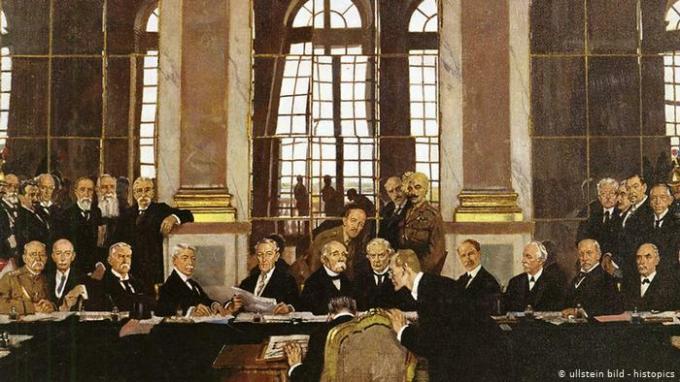The knowledge that studies the occurrences of the past is called history.
Historians define this science in some distinct ways. There is a line of thought that believes that history actually studies the action of human beings over time, investigating their behavior and its consequences.
There are also those who argue that this knowledge is dedicated to researching changes in different societies over the years.
Thus, it is up to the professional in this area to ascertain the trajectory of important events and events, formulating some conclusions and expanding critical thinking in society.
It is worth highlighting the need for a research method, where the professional chooses the document or historical sources on which he will base his research.
Examples of historical sources are clothing, artistic artifacts, documents, utensils, constructions, fossils, works of art, photographs and anything that serves as vestiges of the past.
the origin of history
The term "history" comes from the Greek word story
, which has as its concept the idea of "research", that is, the understanding coming through research.Herodotus, ancient Greek historian, is considered the "father of history". It was he who developed the first studies with some more systematized method.
Posteriorly, Thucydides, another Greek thinker, carried out more elaborate studies in which he combined several historical sources.
It's his work History of the Peloponnesian War, in which he focuses on the conflict between the cities of Athens and Sparta.
Periods of History
There is a consensus among Western historians that determines some periods of human history. Are they:
- Prehistory: considered the entire period of evolution of human beings until the invention of writing, which occurred approximately in 3500 BC. Ç.
- Old age: occurred from the development of writing until the fall of the Western Roman Empire (476 d. Ç). Study the great civilizations such as the Greeks and Romans. In relation to the peoples of the East, it includes the Egyptians, Mesopotamians, Hebrews, Phoenicians and Persians.
- Middle Ages: from the fall of the Roman Empire to the fall of Constantinople (in 1453), covering the period from the 5th to the 15th century.
- Modern age: it extends from the 15th to the 18th century, when the capitalist system was consolidated.
- Contemporary age: begins with the French Revolution, in the 18th century, and continues to the present day.
Highlights of General History
It is called General History in Brazil, the study of the world in a broad way, covering countries other than ours.
Thus, we have some important periods that are worth mentioning:
- Ancient Greece
- Feudalism
- Rebirth
- French Revolution
- neocolonialism
- Industrial Revolution
- First World War
- Second World War
Highlights of the History of Brazil
Already the History of Brazil tells us about the facts related to our country from the entry of the Portuguese into the territory. There are also those who consider the pre-Columbian period as part of national history.
- Brazil Colony
- Independence of Brazil
- Bahia Conjuration
- first reign
- First Republic
- It was Vargas
- Military dictatorship
Importance of History for Society
The study of past events is important in that they are a way for us to know how our ancestors lived, how they felt and acted in the world.
In this way, we can map events and reflect on how we can, in the present, guide our actions.
Furthermore, the historical understanding of the facts helps us to reflect on living together in society. It also helps in understanding the differences between cultures and countries, evaluating the paths that lead certain social groups to act in one way or another, as well as developing thinking critical.


